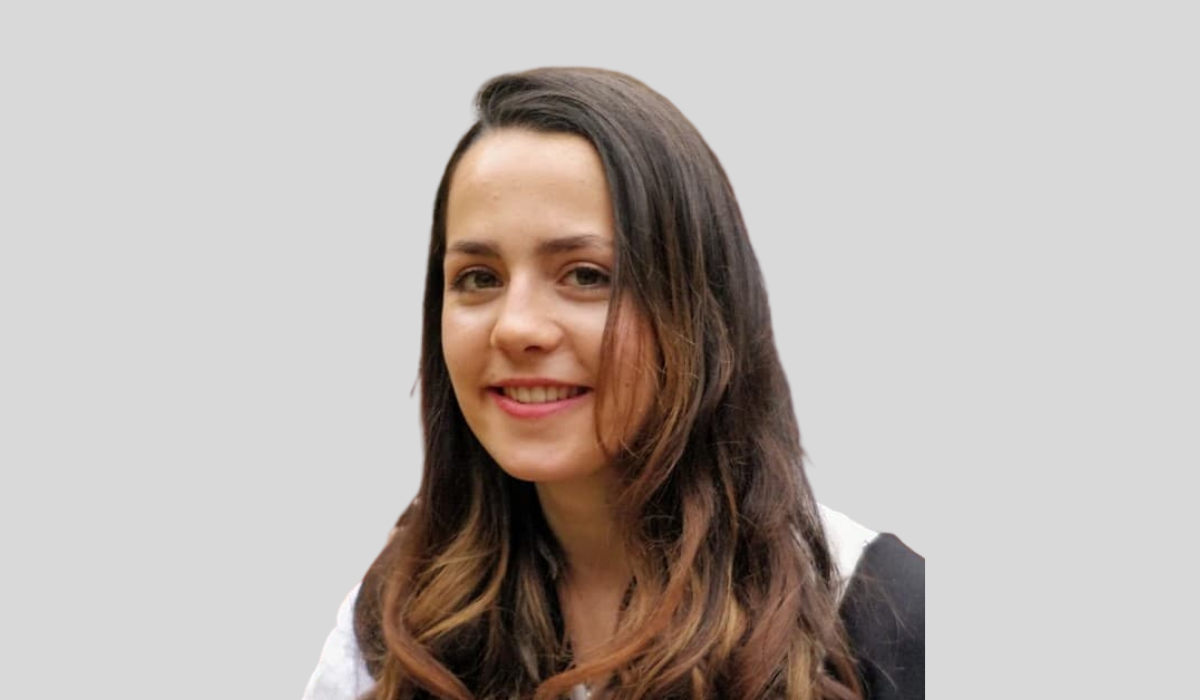Lucy medical student Anastasia Georgiou discusses her studies, publications, and travels
I’m in my final year of graduate-entry medicine at Lucy. Thus far, my academic interests lie in acute care, psychiatry, public health, medical law, and ethics; however, I have not yet settled on a specialty. My first degree was in Law. Outside of the hospital, I read, write, lift weights, and plan future travels.
Over the past eighteen months, I have explored academic writing in the field of medical law and ethics. This subject area is challenging, topical and has allowed me to combine my interests.
In April 2021, I wrote an article for the Obstetrics, Gynaecology and Reproductive Medicine journal which outlined the legal history of ‘informed consent’ in medicine. It explored how changes in case law and in ethical thinking have moved consent to the forefront of good practice. It also advised doctors on how they might interpret and apply the then newly published General Medical Council guidance on consent. This was written under the supervision of Ms Helen Bolton, a gynaecology oncology consultant at Addenbrookes. I really enjoyed writing this as I had free reign to research, interpret and write as I felt appropriate. Consent is a topic I focussed on in my first degree, so it was interesting to revisit it with medical knowledge.
The second project is a textbook chapter of which I am co-author, again with Ms Bolton. The book is called Lessons from Medicolegal Cases in Obstetrics and Gynaecology and my role here was to research cases for inclusion in and edit the writing for our chapter on gynaecology oncology. It was challenging to find my way around legal databases again but was ultimately very rewarding. This is due for publication in May 2022.
Third, I am in the process of writing a paper as part of a larger project aiming to pilot ‘uncontrolled’ organ donation in the UK. ‘Uncontrolled’ means that the patient has had a cardiac arrest prior to organ retrieval (as opposed to what currently happens in the UK – retrieval happens after the controlled withdrawal of life-supporting therapy). That is to say, ‘uncontrolled’ donation might allow consenting adults who die outside of hospital, e.g. in a road traffic collision, to become organ donors, as opposed to only those who die in a controlled hospital environment. This is a controversial project which needs sound ethical, legal, and evidence-based foundations. My role at present is to do a systematic review evaluating the current ethical literature in the UK on the topic. This is being done under the supervision of Dr Zoë Fritz, a consultant doctor in acute medicine at Addenbrookes, and as part of a wider team at Addenbrookes and at the Centre for Law, Medicine, and Life Sciences.
If I may give some advice to medics in earlier years looking to publish for the purpose of FPAS points, it would be to (a) start earlier and (b) ensure that the paper is likely to be listed on ‘PubMed’. The process is very long, and it can be disappointing to find that your papers don’t count. However, it’s worth getting involved anyway – you learn important skills, get to work with impressive people, and you may find a topic that interests you. Several of my friends have published, and all in very different fields. It also helps with future job applications.
Two years ago, I applied for the Gladstone Travel Award with the intention of doing a gastronomic tour of Italy. I planned a route that involved olive-oil pressing in Liguria, pasta-making in Bologna and truffle-hunting in the mountains. The interview for the award was rather daunting; a panel of ten trustees invited me to a very grand clubhouse in London and grilled me on my plans. Sadly, the pandemic meant that I wasn’t able to travel to Italy. However, I was finally able to use the award in Summer 2021 for a more local gastronomic tour of the South Coast. I spent several weeks camping on the Devonshire coast, learning about local wildlife and tidal patterns and about local food history. I was very grateful for the support of the Gladstone Trust – it allowed me to have a very enjoyable summer and to learn more about the UK coastline, coming back refreshed for my final year. My tutor Dr Isabel Clare was very supportive of my application and wrote me a reference, which I really appreciate. I enjoy my time at Lucy and am lucky to have very supportive tutors and colleagues. I am particularly grateful for the library elevenses and threesies which have seen us through several exam periods and stressful terms.




